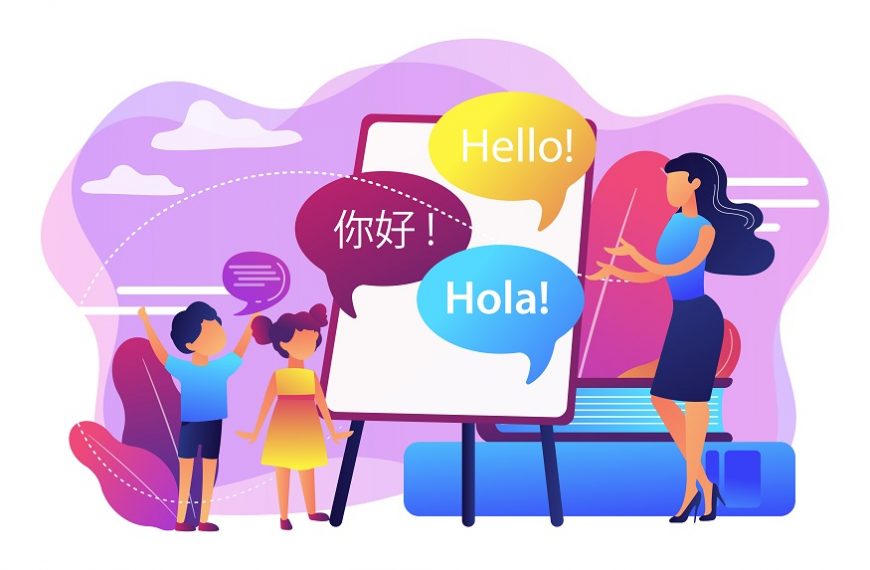Bilingual Education: Advantages, Goals, Challenges, and Impact
What is Bilingual Education?
Today’s world is more interconnected than ever before, and the ability to communicate in multiple languages has become an essential skill. With globalization becoming the norm, bilingual education is increasingly considered a cornerstone of comprehensive schooling. But, what is bilingual education? In simple terms, bilingual education is an educational approach where instruction is provided in two languages. But beyond this basic definition, the advantages and disadvantages of bilingual education have become a central topic in global educational discourse.
What is the Main Purpose of Bilingual Education and its Goals?
What is the main purpose of bilingual education? Why has it become an integral part of modern education systems across the globe? The fundamental objective of bilingual education is to promote bilingualism – the ability to speak and understand two languages proficiently – along with academic achievement and cross-cultural competence. By doing so, bilingual education provides children with the skills and knowledge they need to thrive in an increasingly diverse and global society.
Cognitive Benefits and Career Prospects
Bilingual education also contributes to cognitive benefits. Studies have shown that bilingual children tend to perform better on tasks that require multitasking, problem-solving, and decision-making. This is because managing two language systems within one’s mind stimulates the brain, enhancing cognitive abilities, and fostering creativity. Furthermore, studies have found that children who learn a second language from an early age have an advantage in developing strong listening skills and improved memory function.
What is more, bilingual education opens doors to opportunities that monolingual individuals may not have. The ability to speak multiple languages can be a significant advantage in the job market, as many employers now value employees who can communicate effectively with clients and colleagues from different cultural and linguistic backgrounds. The benefits of being bilingual in education extend into one’s career and economic prospects, offering a competitive edge in an increasingly globalized workforce.
Potential Challenges and Mitigation Strategies
Despite the multitude of benefits, it would be remiss not to address the potential disadvantages of bilingual education. One concern is that students may become confused or overwhelmed by learning two languages simultaneously. There may also be an initial lag in language development, with children appearing to progress more slowly in both languages. However, research suggests that these are temporary setbacks. Over time, bilingual students typically catch up to and often surpass their monolingual peers in academic performance.
Cultural Preservation and Identity Formation
Another goal of bilingual education is to maintain and develop students’ native languages and cultures. By promoting bilingualism and biliteracy, schools can help immigrant and minority students retain their cultural heritage while also acquiring the linguistic and cultural competencies necessary to succeed in the dominant society. This aspect of bilingual education can strengthen a sense of identity, self-esteem, and community among students from diverse backgrounds.
Promoting Inclusivity and Diversity
The advantages and disadvantages of bilingual education should be carefully considered, but the overarching consensus in contemporary educational research emphasizes the multitude of benefits. Apart from cognitive advantages, enhanced career prospects, and cultural preservation, bilingual education plays a pivotal role in promoting inclusivity and diversity. It can cultivate respect and understanding among individuals from different linguistic and cultural backgrounds, fostering a more harmonious society.
Preparing Global Citizens
Bilingual education, therefore, is not just about learning a second language; it’s about preparing our children for the realities of a globally connected world. It nurtures flexible thinkers, sensitive communicators, and informed global citizens. The goals of bilingual education aim to provide a comprehensive learning experience that is responsive to the diverse needs of today’s students while promoting equality and mutual understanding in a multicultural society.
Bilingual Education: Building a Pathway to Academic Excellence
The profound cognitive benefits associated with bilingual education often translate into heightened academic achievement. The skills acquired through learning two languages simultaneously, such as problem-solving, multitasking, and better memory function, go a long way in augmenting the overall learning process. This academic edge is not just confined to language-related subjects but also extends to areas like mathematics, science, and social studies. For example, the enhanced problem-solving skills facilitated by bilingual education can aid in tackling complex mathematical problems. Thus, the academic advantages of bilingual education should not be underestimated.
Bilingual Education: A Social Catalyst
Beyond cognitive and academic enhancements, bilingual education also acts as a social catalyst, shaping children into empathetic, understanding, and adaptable individuals. As they learn about different cultures, traditions, and perspectives through a new language, they grow more accepting of diversity. This acceptance fosters an inclusive environment in classrooms, helping children of all backgrounds feel accepted and understood. Moreover, bilingual education equips children with communication skills that enable them to build connections with a broader range of individuals, thereby enhancing their social experiences.
Bilingual Education and Long-term Health Benefits
Interestingly, the benefits of bilingual education are not confined to cognitive, academic, and social dimensions alone. Research has suggested potential long-term health benefits, particularly concerning cognitive health. Bilingualism has been linked to delayed onset of dementia and other age-related cognitive impairments. This is believed to be due to the constant mental exercise bilingual individuals engage in as they switch between languages, helping keep their brains healthier for longer.
Fostering Global Citizenship through Bilingual Education
In today’s interconnected world, global citizenship is more important than ever. Bilingual education plays a significant role in fostering global citizenship, instilling an understanding and appreciation of different cultures, perspectives, and global issues in students. Through this understanding, students become better prepared to engage with and contribute to our globally connected society.
Bilingual Education: A Worthwhile Investment
In conclusion, the cognitive, academic, social, and health benefits of bilingual education, coupled with its role in fostering global citizenship, make it a worthwhile investment for our children’s future. While it comes with its challenges, the advantages far outweigh the potential drawbacks. Bilingual education is not just about learning a new language; it’s about embracing diversity, promoting cognitive growth, fostering social inclusion, and preparing children for a global future. The world is becoming increasingly interconnected, and bilingual education is the tool to help our children thrive in this global society.
For further assistance in this direction, consider EuroKids wherein we provide a wholesome learning experience for your child.
















